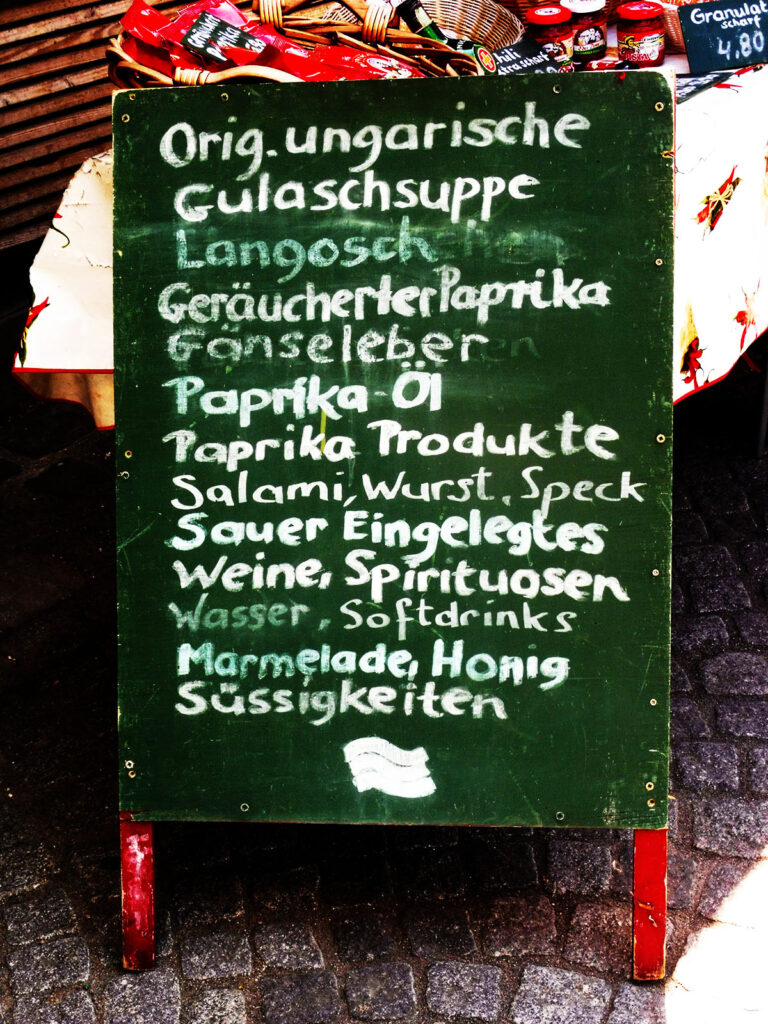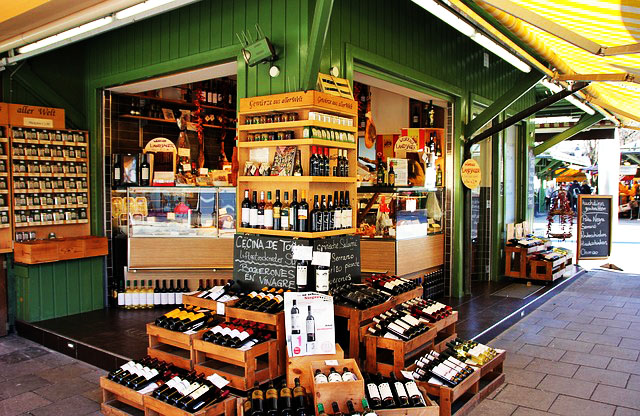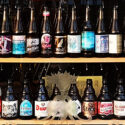Any food connoisseur who wants to enjoy a good Lager with live music as a backdrop needs to visit Viktualienmarkt in Munich. In summertime this place is bustling with activity and I find myself here again in mid July.
Munich is a large city so to enjoy some of the Bavarian slow pace of life, it is vital to know the right places. Viktualienmarkt is a strong contender and can measure up with small quaint villages and countryside bicycle tours.
It was first a farmer’s market two hundred years ago and grew into what it is today, a meeting place, food market, music venue and a feast for the eyes, nose and ears. When it was first established it was on the Marienplatz, the city’s main square. But like any other successful venture, it grew and had to be given more space and attention. It was moved and by royal decree (by King Maximilian I) to where it is today, a few hundred meters away from the Marienplatz.
This little town square with the winding streets encircling it stand in contrast to the neighbouring streets that are winding themselves to and around the market. It is remarkable that this cozy place is only 20 minutes by foot from Munich central train station (Hauptbahnhof). Because there is such an obvious contrast between the small town feeling in the market square and the hustle and bustle with wide streets around Munich central station.
Even now in the 21st century with mass tourism in all larger cities in Europe, the Viktualienmarkt succeeds as an authentic local experience. Yes, you will find the tourists strolling around and the beer gardens that line the sides of the market attract the families and couples lining up their cameras next to their beers and their weisswurst. But the architecture of the buildings next to the market tell tales from hundreds of years back. And the people who work and live by the Viktualienmarkt do so with passion. You will find their local produce for sale in the market stalls and they are happy to converse about their food and drink. This is not a place to rush through to buy groceries. Instead allow yourself to be lulled into a calm as you walk back and forth, and around. Let the food stalls paint a picture of Bavarian cuisine, what it used to be and how it still is part of the daily life in Munich to this day.
So what moulded the Viktualienmarkt into its contemporary feast for the senses? Well, it is not just the beer garden or the fresh food for sale. Sure, the live music (mainly funky jazz) adds to the holiday vibe, but it started out as a food market for the locals. The entire market square was made into a pedestrian zone in November, 1975. This certainly helped to boost the popularity of the Viktualienmarkt as an area to hang out with friends and family.

The grocery market that was gentrified
The Viktualienmarkt stems from the word word victuals which means food provisions. This word can be traced to the Anglo French vitaille and even further back to its Roman origins, victu(s), meaning nourishments and way of living. And this double meaning really comes to its right when used to describe the Viktualienmarkt of today. It is really a way of living, to saunter around there, buy groceries, enjoy a Lager and exchange some gossip with friends in a beer garden. You can easily spend hours on this small food market, moving between food stalls, restaurants and beer gardens.
Gourmets rejoice
In the past the Viktualienmarkt played the role of the food market for everyone. But these days it caters more to the gourmets. Even restaurant chefs and hotels buy their groceries from here. There are more than 100 retailers on the market and together they offer the largest selection of fresh food and fruit in Munich.
So you want to go here?
The address is Viktualienmarkt, 80331 Munich
All S-Bahn lines go there, as well as the U3 and U6 with the destination “Marienplatz”.
It is open from Monday to Saturday and from early morning until late afternoon.





